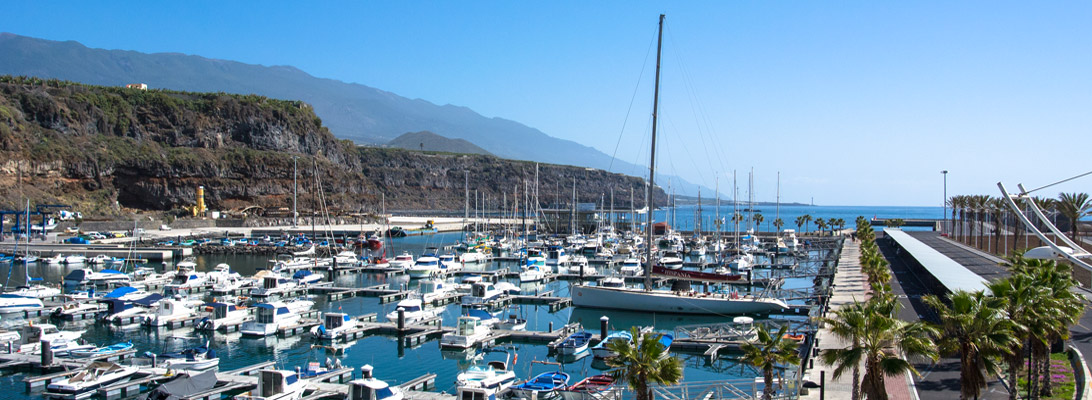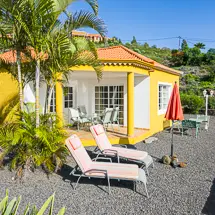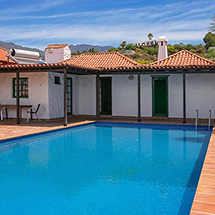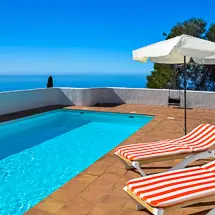About one-third of the workers in La Palma work as farmers or in agriculture (mainly banana plantations), another third in trade, administration and tourism and the rest in the rapidly growing construction and craft industries. In addition to tourism, the monoculture of banana plantations, which is ultimately only made possible by EU special conditions, is still being maintained, despite all criticism of the environmentally damaging monoculture.
Export of exotic fruits
In La Palma's history bad experiences with such monocultures were made again and again: After they were no longer competitive, thousands of Palmeros had to emigrate time and time again to secure their survival overseas. In order to get rid of the "banana burden" of agriculture today, the export of exotic fruits such as avocados, pineapples, papayas or mangos is also being promoted. The yields of vegetables (tomatoes, potatoes, maize, etc.) have not even been sufficient to meet local needs. About 70 percent of the food needed, even citrus fruits must be imported. The almonds, which are difficult to process, are no longer as important as in the past. Wine (near Mazo and below Los Canarios), chestnuts (on the slopes of the Cumbre and tobacco (especially in Breña Alta) enjoy marginal importance alongside goat farming and fishing. Salt extraction in the Fuencaliente salt works is no longer competitive in world markets.
Gentle tourism on La Palma
Following phases of steady growth in recent years, tourism has experienced a slight decline in visitor numbers. In 2010, as many as 200,000 tourists came to the island, mainly individual tourists, many of them from Germany. The island government and some mayors are increasingly focusing on luxury tourism, for example with a 1,250-bed hotel in Fuencaliente opened in 2004. In addition, new hiking trails have been marked in recent years, the airport, roads, hiking huts and tourist information have been expanded. Cruise and golf tourists are to be drawn towards the island. La Palma's relatively small number of bathing beaches is proving to be a protection against an excessive increase in tourism. Also, German emigrants have meanwhile built up a considerable infrastructure on La Palma, whether in medical professions, as owners of shops, real estate offices, organic farmers, craftsmen, artists or in tourism.














